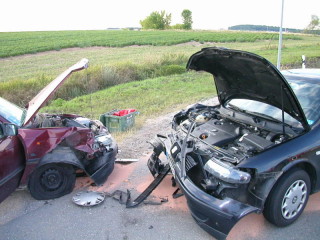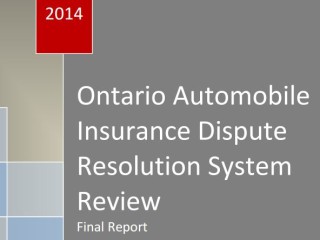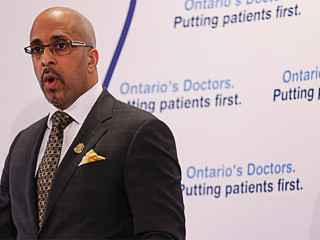The courts will compel a plaintiff to attend a defence medical examination for a “matching” report where failure to do so would result in unfairness to the defendant.
Date Heard: June 19, 2018 | Full Decision [PDF]
This was a motion to compel the plaintiff in a personal injury action to attend at a defence medical examination conducted by physiatrist Dr. Michael Devlin.
The plaintiff was injured in a collision on September 14, 2013, when an automobile driven by the defendant collided with the plaintiff, who was riding a motorcycle. As a result of the collision, the plaintiff’s left leg was amputated.
As of August of 2017, the plaintiff had served 11 reports from 6 expert witnesses which included a neuropsychologist, an orthopaedic surgeon, a neurologist, a psychiatrist, a physiatrist, and an occupational therapist. From January to August of 2017, the defendant served reports from 3 experts; a neuropsychologist, an occupational therapist, and an occupational medicine specialist.
The motion turned primarily on the occupational medicine report from the defendant. This report was completed by Dr. B. McGoveran. Dr. McGoveran assessed the plaintiff on November 11, 2016, for just under 3 hours. Dr. McGoveran issued a report summarizing his findings and expressing his opinion on the injuries sustained by the plaintiff and the impact of those injuries on the plaintiff’s ability to return to his pre-collision employment.
On January 23, 2017, the physiatrist retained by the plaintiff Dr. John Flannery wrote a response to Dr. McGoveran’s report. Dr. Flannery observed that Dr. McGoveran had no extensive exposure to amputation diagnosis, management, and prognosis. On February 6, 2018, Dr. McGoveran issued a supplementary report wherein he conceded that his expertise did not equip him to assess the treatment of amputees. Dr. McGoveran recommended another assessment of the plaintiff by a doctor who was so equipped. The defendant requested Dr. Devlin complete this assessment.
Master Wiebe set out that the issue before him was whether the further defence medical assessment was warranted and legitimate.
Mr. Cooper, on behalf of the plaintiff, argued that the requested assessment was an attempt by the defendants to rectify their mistake in having chosen a non-physiatrist to examine the plaintiff. Mr. Cooper argued that the assessment conducted by Dr. McGoveran was as thorough as any physiatry assessment. Mr. Cooper further alleged that the plaintiff’s symptomology had not changed since Dr. McGoveran’s report, thereby obviating the need for a subsequent assessment. Mr. Cooper pointed to the decision in Ramrup v Lazzara 2014 CarswellOnt 637 (ONSC) which sets out that a litigant is not entitled to simply match the experts retained by the opposing party. Mr. Cooper also highlighted the decision of Justice Quigley in Jeffrey v Baker 2009 CarswellOnt 4561 (ONSC) where it was noted that defence medical examinations are by their nature “highly intrusive and invasive”.
Mr. Small, on behalf of the defendant, argued that the assessment was warranted as a matter of fairness, as the defendant did not have a report from a physiatrist or orthopaedic surgeon. While Mr. Small was live to the issue of “matching reports”, he argued that this should not be an impediment and that the overriding issue was one of fairness to the defendant.
Master Wiebe accepted the submissions of Mr. Small. Master Wiebe held that the court should focus on what expert evidence the plaintiff has obtained and what expert evidence the defendant may need in response in order to “level the playing field”. Master Wiebe acknowledged that while the “matching” of reports was frowned upon, that issue did not apply to this motion. Master Wiebe held that the type of “matching” referred to in Ramrup arose where a requested assessment would simply corroborate already existing medical evidence but would contribute nothing further. He held that such a scenario was distinguishable from the case before him.
Master Wiebe emphasized that in this case the defendant did not have an existing medical report from a physiatrist with a specialization in amputations. The plaintiff did have such a report. Therefore, as a matter of fairness, it was ordered that the plaintiff attend at the assessment of Dr. Devlin.
Read the full decision [PDF]














